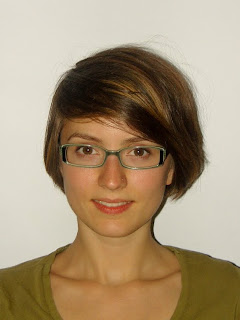Read about our volunteers in the field, as well as providing medical care for vulnerable people around the world, our volunteers are also frontline witnesses to some of the world's worst human and natural disasters.
Thursday, 17 June 2010
Sara Robbins - Bringing health care to those in desperate need on our doorstep
Sara Robbins is a 4th year medical student, Kings College London:
It’s Wednesday afternoon, and I head over to the Project:London (P:L) clinic where I volunteer as a support worker. I begin my first social consultation with Prisca*, a South African woman who has been living in the UK for five years. She begins telling me her story, explaining why she has come to the clinic, when she breaks down in tears. She is frightened. She came to London as a domestic worker with her South African employer, who abused her, took her passport, and abandoned her with nothing. After being “turned away” from an NHS Walk-in Clinic, and believing she was not allowed to register with a GP, Prisca went for years without her diabetic medication or regular checks. Over this period, her diabetes spiralled out of control, and she is now suffering from the serious sequelae of the disease.
Seeing the patients arrive at the P:L clinic has opened my eyes to the impact lack of access to health care has on vulnerable migrants, homeless people, and sex workers. In Prisca’s case, her lack of documents, poor knowledge of entitlement to care and confusion from the side of the service provider have resulted in devastating consequences to her health. From my experience at P:L, it is apparent that NHS services are becoming increasingly inflexible towards people with such diverse needs. Yet their poignant stories provide a powerful defence for their right to health, if given the opportunity to be heard.
The importance of global health is widely appreciated in medical schools across the country, and medical students are showing an ever increasing interest in the topic. However, the vast horizons of these health issues can seem overwhelming, and from my experience, many medical students feel unsure of how to help them. There is often a preconception that issues such as problems accessing health care only occur in “developing” countries while the truth is that many people are suffering on our own doorstep. I understand it is easy to be complacent about these problems, but do not underestimate the effect you can have. At the P:L clinic, I carry out social consultations with patients before they see our doctor. I also liaise with GP practices to advocate for health care for our patients, as well as directing them to appropriate legal and social services. These opportunities provide help and advice to patients. P:L also advocates for better access to health care. So you see, you don’t have to fly half way round the globe to change lives – just hop on the Central Line to Bethnal Green, and you can make the world of difference to someone like Prisca.
P:L is an advocacy service which aims to help people access health services, while providing short term health care for their current needs.
For more information about Project:London and how to volunteer, visit our website.
*Name changed for confidentiality reasons.
(This blog was originally published on the BMJ blog at http://blogs.bmj.com/bmj/)
Subscribe to:
Post Comments (Atom)

No comments:
Post a Comment